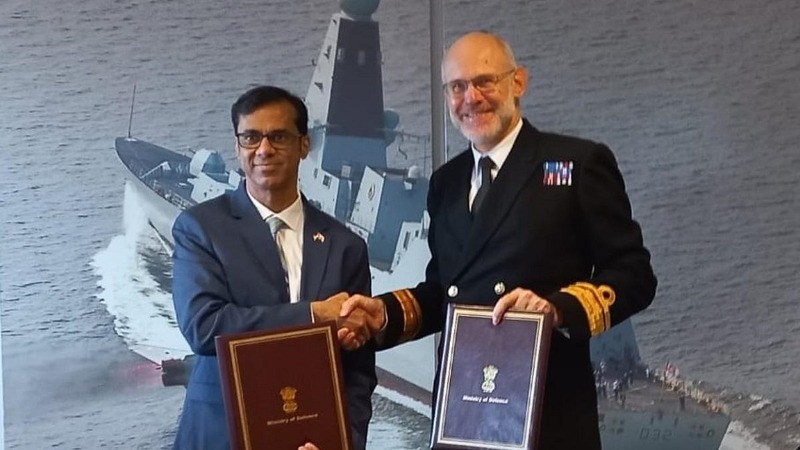
India and the United Kingdom (UK) have officially signed a framework agreement to co-design and co-produce electric propulsion systems for future warships. This collaboration aims to strengthen their strategic cooperation in defense technologies.
The agreement, known as the Statement-of-Intent, was signed on Thursday by the defense ministries of both countries in Portsmouth, according to an official release from India.
The framework focuses on joint efforts in the development and production of electric propulsion systems for upcoming naval ships. It is expected that landing platform docks, which are set to be built at an Indian shipyard, will feature fully electric propulsion systems.
This signing marks a significant milestone in the ongoing partnership between the two nations, following the third joint working group meeting on electric propulsion capabilities. It demonstrates their commitment to promoting the domestic development of advanced defense technologies.
On behalf of India, the Statement-of-Intent was signed by Rajeev Prakash, Joint Secretary (Naval Systems), while Rear Admiral Steve McCarthy, Director of Ships Operations and Capability Integration at the UK's Ministry of Defence, signed the agreement for the UK.
This agreement was finalized shortly after British Minister for Indo-Pacific, Catherine West, visited India, further enhancing the bilateral defense relationship.
Currently, Indian warships are powered by diesel engines, gas turbines, or steam turbines. However, the new electric propulsion capability is designed to enhance the power systems of larger warships, particularly those with a displacement of over 6,000 tonnes. This shift to electric propulsion will provide greater efficiency and reliability, enabling the Navy to operate more advanced and sustainable ships in the future. The move aligns with global trends toward cleaner and more efficient energy solutions in naval operations.